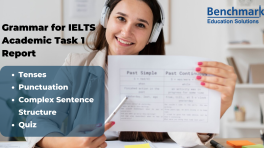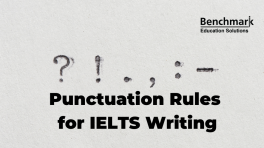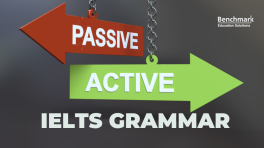Guide to Using Grammar Tenses in IELTS Writing & Speaking
- 0 Comments
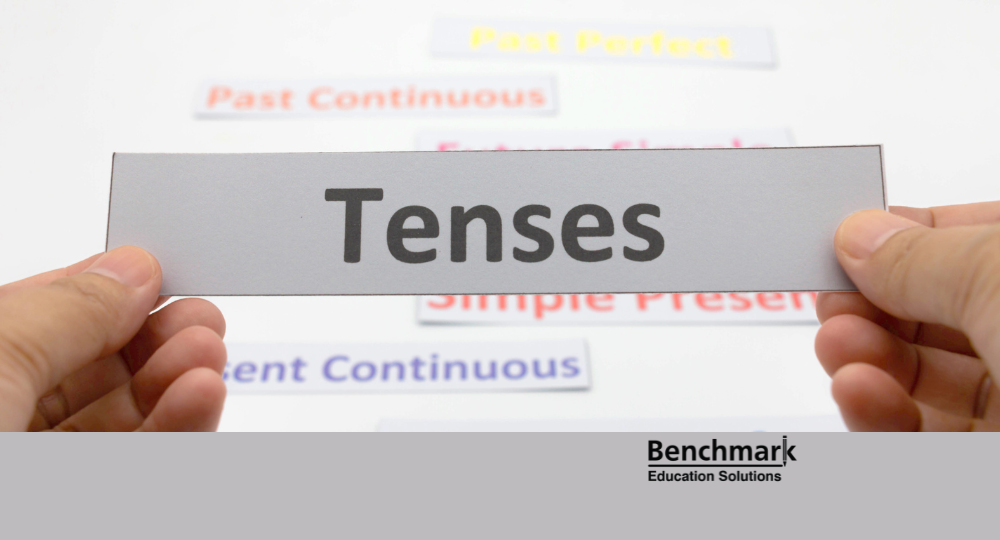

There are 12 tenses in English, which can sound quite daunting to any non-native speaker. The best approach is to familiarise yourself with all the forms and their purpose.
Tenses are crucial in storytelling, as they indicate the times of events and whether certain actions are ongoing, completed, or habitual. To obtain grammatical accuracy and create an essay that flows logically, you need to master the structure of each tense and know when to use it.
Table of Contents
1. 12 Tenses with Example Sentences
Let’s have a look at all 12 tenses and their application in the real world
| Simple | Continuous | Perfect | Perfect Continuous | |
| Past | To describe completed actions that happened at a specific time in the past.
I bought a car last year. | To describe actions that were in progress at a specific time in the past.
I was reading a book when the phone rang.
| To describe actions that were completed before another action in the past.
I had worked in marketing before I quit last year. | To describe actions that were ongoing up until another action or point in the past.
I had been working on the project for months before I gave up. |
| Present | To express habitual actions, general truths, and facts.
I drive to work every day. | To express actions that are currently happening at the moment of speaking or actions that are ongoing.
I am studying for the IELTS exam at the moment | To express actions that happened at an unspecified time in the past and have relevance to the present.
I have completed most of the work already. | To describe actions that started in the past and continue to the present.
I have been working on this project for weeks now. |
| Future | To express future actions or decisions made at the moment of speaking. Use will or going to.
Will: Unplanned/last minute decisions. Going to: Planned/scheduled actions
I am going shopping with a friend this weekend.
I will probably have leftovers for dinner this evening. | To describe actions that will be in progress at a specific time in the future.
I am going to be staying with my mother for a few weeks this coming holiday. | To describe actions that will be completed before a specific time in the future.
I will have finished this book by then. | To describe actions that will be ongoing up until a specific time in the future.
I will have been working for this company for 3 years in August next year. |
2. What tenses should be used in IELTS?
Don’t overwhelm yourself when speaking by trying to incorporate as many tenses as possible; instead, focus on using them correctly and naturally. It’s likely that you won’t even need to use half of all the tenses in English and still obtain a high score.
We’ll go over the tenses you’re likely to encounter within the various parts of the IELTS exam.
2.1 In the speaking section:
All tenses can be used within the speaking section; it’s important that you pay attention to the question being asked.
2.1.1. In Speaking Part 1, you might get asked simple questions like: Did you play any sports as a child?
This question uses a past tense verb to ask a question about your childhood; for this reason, it is crucial that you answer using the past tense.
For example: I was a very active child and took part in various outdoor activities over the weekends. Whenever I wasn’t eating or sleeping, I’d be in the garden, kicking a ball or shooting hoops.
2.1.2. For Speaking Part 2, your answer will be longer (2 minutes), which means you have more opportunity to use a variety of tenses.
Describe a job that one of your grandparents did.
Please say
● what was it
● was it a hard job
● did he/she like it or not? Why
Not all Part 2 questions will directly ask you a question about something from the past like this one, but it’s possible to incorporate a story or memory into almost any answer.
For example:
I never met any of my grandparents; both my mom’s and my dad’s parents passed away even before I was born. That being said, my mom has told me a million stories about them, so in a way, it does feel like I have met them.
My grandfather used to own a restaurant in the small coastal town my mom grew up in. Apparently, it was extremely popular and quite tricky to get a table on most nights.
Present perfect and past simple have been combined in this example. The present perfect talks about things from the past that still have relevance in the present, whereas the past simple is used to mention specific events.
2.1.3. Speaking Part 3 is in a similar format to Part 1, but your answers will be a bit longer. Usually, you’ll be asked for your opinion on various topics. Opinions and arguments are given in the present tense, with exception when making past references or future predictions.
Q. What do you think of people who achieve success independently?
A. I think individuals who achieve success on their own show remarkable resilience and determination. They set goals, overcome obstacles, and stay motivated without external support. Their self-discipline and initiative are commendable and serve as an inspiration to others. In the future, I’ll do my best to follow their example and make a success of myself as well.
2.2 In the writing section:
A combination of tenses can be used in both academic and general training. Using the appropriate tenses with the correct punctuation is crucial to obtaining a core grammar score.
2.2.1 Academic Writing Task 1
The present simple tense is mostly used to describe a flow chart. Whereas a graph will require a combination of tenses: When past dates are provided, you’ll use the past tense and the present tense if there are no dates.
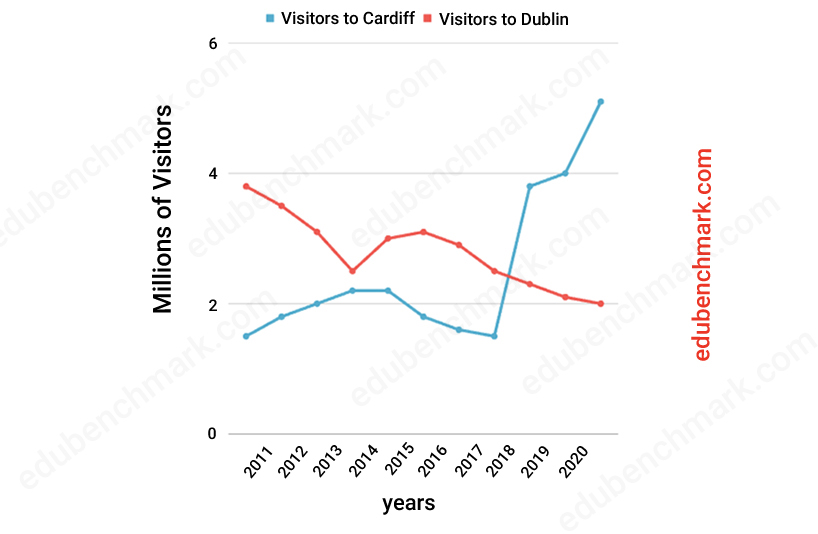

This graph provides data for past years. You can use a combination of the past simple, past perfect and past continuous to describe the trends. However, the graph portrays a slow increase in visitors to Cardiff between those years.
For example:
Even though Dublin had more visitors than Cardiff before 2017, the number of visitors to Cardiff dramatically increased in 2018. This made Cardiff a more popular destination than Dablin in 2020.
2.1.2. GT Writing Task 1
If you’re taking the general training exam, a variety of tenses can be used for the letter, it just depends on the topic.
You are preparing an event in the countryside. Write a letter to your friend and ask for help with the arrangements. In your letter include:
what the even it
why the event is being held
What arrangements have already been made
how your friend can help
For example:
How have you been? It feels like we haven’t spoken in ages! I’d love to catch-up, but the real reason I’m writing to you is to ask for a favour.
2.1.3. Writing Task 2 Essay
As for the essay, in writing Task 2, you’ll mostly make use of the present tense to formulate arguments and express your opinion. With the occasional past tense reference (mostly when providing reasons or further examples to support your ideas) or even future prediction where necessary.
Scientists and technology experts seem to be more valued by modern society than musicians and artists.
To what extent do you agree?
For example:
In today’s rapidly advancing world, it is evident that scientists and technology experts are often held in higher regard than musicians and artists. This preference stems from the crucial role these professionals play in driving innovation and addressing global challenges. For instance, breakthroughs in medical research and technological advancements have significantly improved our quality of life and solved pressing issues such as disease and environmental degradation.



